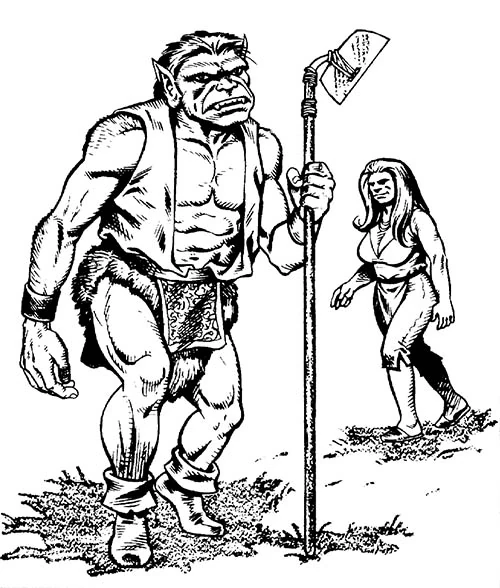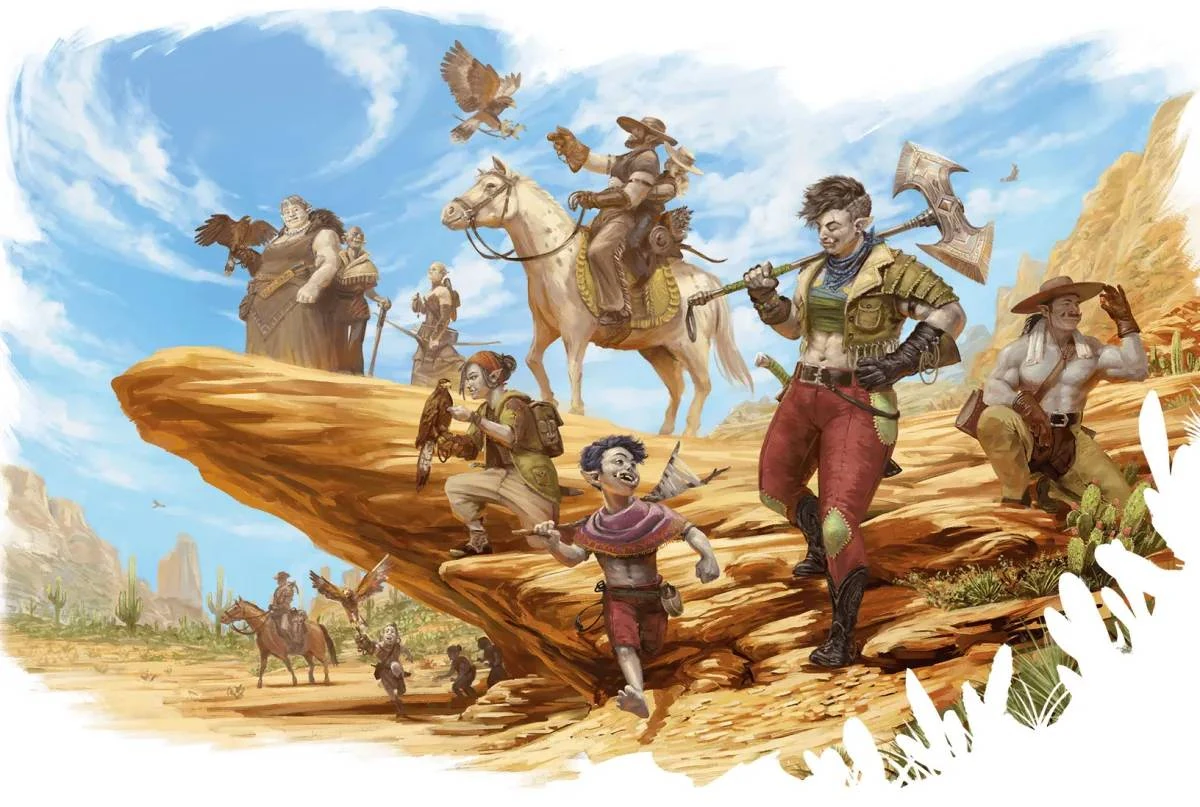Kicking down doors, killing things, and taking their stuff is about 80% of how the game is played. But at least since 2nd edition AD&D, there's always been a justification that the things you're killing are harming people. You don't just attack orcs or vampires because their orcs and vampires, they're preying on other people.
I can't remember every specific instance, but generally they were villains because they were doing villanous things like rob people, raid villages, and that kind of thing. I never had orc heroes or members of the general populace because D&D didn't work that way back then. In my recent homebrew, I got rid of half-orcs and just made them all orcs, and I heard a nearby orcish kingdoms that were allied with some of their human neighbors. I've got no objection to good orcs. They don't have to be bad guys all the time. I'm just not bothered if they are bad guys all the time.
I'll stick with orcs for a moment here; vampires
have to consume sentient creatures to survive (while not all vampires are Ravenloft-style vampires, I seem to recall a bit from the Ravenloft books which suggested animals weren't as filling as human(oids), in terms of drained levels or Con points or whatever, can't recall the edition, so my innate assumption is that vampires, regardless of setting, have to drink the blood of sentient beings). Anyway, vampires, being animated in part by literal dark energies, aren't
natural creatures like orcs are supposed to be. We can probably assume that unnatural or supernatural beings have a different mindset then natural beings do.
So orcs preying on other people. Did you have them be villains because you came up with actual reasons for them to be villainous, or did you have them be villains because they were orcs?
When you say "I'm just not bothered if they are bad guys all the time,"
this is literally what I was talking about. You are making them into the bad guys for no reason other than that ages ago, someone decided they would be the default bad guys.
You seem to take that as a moral affront though. If you think it's unimaginative, confining, boring, etc., etc. then just say that. I respect that argument a lot more than complaints about game creators defaulting orcs to antagonist status. And it isn't just for no reason, it's because you need an opponent for a game that mostly revolves around killing things and taking their stuff.
I
have said it's unimaginitive before, just like I've said it's unimaginitive to rely on slaver races or those other tropes that have been done to death. Just like I've said it's
imaginitive to come up with a bad guy who actually has motivations that make them deserving of being killed and stolen from. You talk about bandits. Human bandits, elven bandits, halfling bandits--all can be as evil as orc bandits, or more so, if you desire. Heck, Ravenloft even had a infamous halfling bandit who, IIRC, used
pipes of haunting to induce magical fear in his victims.
As I think I mentioned before, the first setting I ever loved was Ravenloft, so I came into D&D thinking that each villain should have a motivation, a
reason why they're evil. Orcs don't have a reason; they're villains because they're orcs, and yes, that makes them
boring.
You're right, it doesn't have to be there. In all my years of playing D&D, I have never seen a half-elf as the victim of bigotry in a game. Not a single time. There may have been a few scenarios written where one NPC might not like an elf, a dwarf, or some other demihuman, but in my experience no PC species experiences regular and/or significant bigotry in any written scenario. Maybe someone else can correct me on this.
Awesome. So bigotry doesn't
need to be part of the half-elf description, in the way some people here have said it does?




